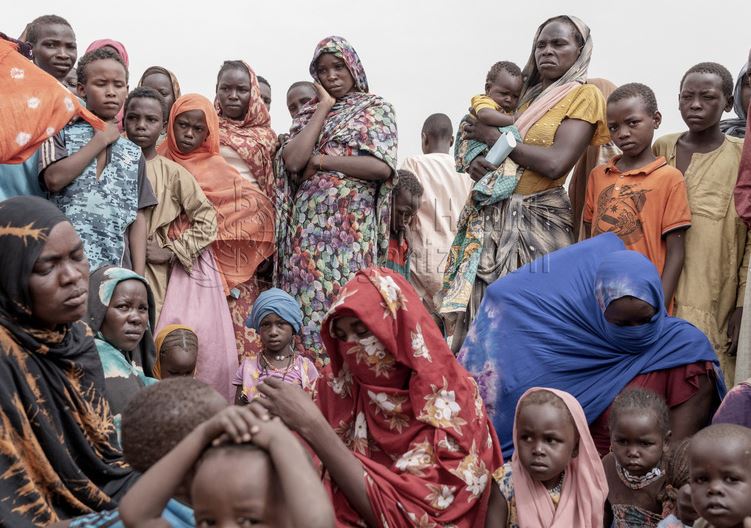The spokesman for UN Secretary-General António Guterres on Wednesday said that the Office for the Coordination of Humanitarian Affairs (OCHA) is deeply concerned about people continuing to be displaced by conflict in several parts of Sudan.
Speaking during a press briefing in New York, Stéphane Dujarric, said that the UN Refugee Agency (UNHCR) says that due to the intensifying conflict in Darfur, close to 25,000 people have arrived in eastern Chad in the first week of October alone.
“That’s the highest number of new arrivals this year within a single week – and higher than in the whole month of September. And Chad is host to over 600,000 Sudanese refugees – that’s more than any other country,” he said. “According to UNHCR, nearly 3 million refugees and returnees have now fled Sudan after 18 months of hostilities, crossing borders to seek safety in neighboring countries.”
“Aside from Chad, they are mainly fleeing to the Central African Republic, Egypt, Ethiopia, Libya, South Sudan and Uganda,” Dujarric added.
Inside Sudan itself, he said the International Organization for Migration (IOM) estimates that some 40,000 men, women, and children have been newly displaced in the first half of October alone, amid escalating hostilities in some parts of the country as the rainy season ends. This brings the total number of internally displaced in Sudan since the conflict began to nearly 8.2 million human beings.
“With the rains subsiding and more roads now passable, this is a crucial time for aid organizations to move vital supplies to areas where needs are most acute. OCHA calls on all parties to the conflict to stop the fighting, protect civilians, and facilitate humanitarian access. Meanwhile, we and our partners are working with Sudanese health authorities to scale up the cholera response,” Dujarric stated. “This includes large-scale immunization. As of yesterday, more than 24,000 cholera cases – including about 700 related deaths – have been reported since mid-July.”
According to the spokesperson, the ordeal of refugees continues after they cross the borders.
“Our UNHCR colleagues tell us that they are seeing a surge of families arriving in Chad exhausted, many having walked for days through conflict zones. A health center in Chad, called the Birak Health Centre, has been overwhelmed,” he declared. “UNHCR is working to coordinate the relocation of thousands from the border areas. However, funding limitations are slowing down the provision of basic services for these refugees.”
UNHCR’s Regional Refugee Response Plan appeal for $1.5 billion to support refugees, returnees, and host communities is only 27 percent funded.
Turning to South Sudan, Dujarric said the UN Mission in South Sudan issued its quarterly brief on violence affecting civilians on Wednesday covering the period between April and June of this year. It recorded a steep increase in the number of violent incidents – and number of victims – compared to the same period in 2023.
Particularly concerning is that abductions increased by 181 percent while the number of victims of sexual violence rose by 168 percent.
Inter-communal and intra-communal violence by community-based militias and/or civil defense groups remained the primary source of violence. Nicholas Haysom, the Head of UNMISS, called for continued efforts by authorities and communities to peacefully resolve longstanding conflict drivers.




